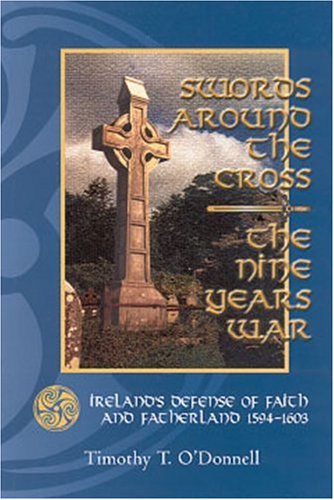
Timothy T. O’Donnell’s Swords around the Cross tells a powerful tale, pregnant with meaning for our modern world.
This comment might baffle at first—given that the subject of this book is a nine year war fought from 1594 to 1603 on an ‘obscure little island’— far from the centres of power such as London, Rome or Madrid, capital of the ‘global superpower’ at that time.
Well might it be asked, what significance has this little-known Irish war for us moderns today?
My answer can be nothing less than this: all the significance in the world, at least if English is your mother tongue and you are a Catholic …
Because dear Lector, if you are an Anglophone and you are a Catholic, you may want to consider a time – a time spanning centuries – where Catholicism was nearly as rare in the English-speaking world, as it is in Scandinavia today.
Indeed, this was an era where it was frequently dangerous to be a Catholic in the Anglosphere!
The Gift of Catholic Ireland to the Anglosphere
Yes, Catholicism was persecuted for generations not only in England, but in her colonies. And although the freedoms associated with the American revolution of 1776 meant that Catholicism had the right—in theory—to flourish in the new-born United States, in practice, the reality was very different.
In reality, America remained a culture steeped in Puritanism. As one may see by reading Puritan’s Empire by Charles A. Coulombe (which I have reviewed in depth here), Catholicism was impeded by many obstacles indeed in early Protestant America.
But around the middle of the Nineteenth Century, something very terrible and very significant happened, which helped to change all this.
That terrible something was the horrific Irish famine of the 1840’s, after the potato crop failed. The result was that vast masses of the Irish emigrated. They came to Liverpool, from where I type these words (making Liverpool the most Catholic place by far on this very Protestant island). And of course, they went to America and Australia.
It is a strange fact of history. In the dark ages, Ireland became a haven of Christian tradition – a land of saints and scholars. And from that island, those saints and scholars carried the torch of faith out to a darkened Europe.
Now, with the Irish famine in the Nineteenth Century, another great exodus from this deeply Christian isle occurred. By this time, once Gaelic Ireland was now largely Anglophone and when the Irish emigrated to the New World, they arrived speaking English.
If a country like Australia is around 29 per cent Catholic today (at least nominally), it is thanks largely to the Irish. And while it is true that America received waves of Italian, Polish, and above all German immigration – all of which served to introduce Catholicism into its Puritan matrix – American Catholicism owes a very special debt to Ireland.
For it was above all, the Irish that pioneered the Catholic Church in America. This was partly because unlike the Italians or the Polish, they knew the native language. But there is more to it than that.
As Charles R. Morris makes amply clear in American Catholic, the Irish had a zeal that by and large, the other ethnic groups never matched. They stormed through Nineteenth Century America, building churches, cathedrals, convents, schools and more.
We would seem to have travelled a long way from the Nine Years War that is at the heart of Swords Around the Cross.
But in reality, we have not. For as Timothy T. O’Donnell makes clear, that Nine Years War did everything to ensure that Catholic culture was preserved within the world of England and her colonies.
A Tale of Catholic Ireland …
For the Nine Years War was primarily religious. Catholic Ireland could not submit to the forced Protestantisation carried out by the monarch of the day, Queen Elizabeth I.
And even if after Nine Years, Elizabeth I finally succeeded in crushing Catholic institutions in Ireland, she could not succeed in crushing the Catholic spirit …
As O’Donnell says:
At the end of the Nine Years War, Catholic and Gaelic Ireland emerged as a nation without a state … The Catholic faith of Ireland was to … thrive despite one of the most severe and savage persecutions in history … [Those who fought] laid the ground work for a future nationalism. If they had not done so, Catholic Gaelic Ireland would have died, leaving behind only ruins, records and artefacts for the archaeologist and philologist …
The truly amazing fact, however, is that the conquest was not complete but merely superficial. The Catholic [uprising] had impressed upon the Irish character something infinitely more profound and deep.
A Catholic nation emerged without a state. On the surface, the English law ran and her armies freely moved. But the soul of Ireland remained free and unconquered … God in His Providential design used this war to deepen the Catholic identity of the people through the cross of suffering and thereby spread the Faith throughout the world.
From this, it may be evident O’Donnell refuses to kowtow to secular materialistic historiography of the zeitgeist – which would, of course, effectively censor all notions like ‘Providential design’.
Does this mean that Timothy T. O’Donnell is hopelessly pious and biased, entirely incapable of academic rigour?
There is much I could say in retort to such a question, including the fact that secular history is filled with bias, often in favour of a truly breathtaking Freudian reductionism …
However, I will simply note that O’Donnell is not only an academic, but indeed president of Christendom College in Virginia.
And I will also note that for readers of this site, Dr O’Donnell’s work may assume another significance. For he has written another book which is of central importance to all that we aspire to here.
That is say, he is author of Heart of the Redeemer, which we regard as the foremost modern book in English about the Sacred Heart (You can find my extensive review of Heart of the Redeemer here.)
At this point, I want to salute Dr O’Donnell. He has not only been at the forefront of trying to preserve and revive Devotion to the Sacred Heart of Jesus in the English-speaking world – but with Swords Around the Cross, he has also given us a key to understanding how and why Devotion to the Sacred Heart of Jesus could find its way into Anglophone culture.
For it must be remembered that for generations, the Devotion to the Sacred Heart of Jesus could find no entry way into the Anglosphere. Even after active persecution ceased, Protestant culture was generally hostile indeed to the Catholic devotions, which it regarded as nothing but ‘syrupy sweet and sentimental’.
But here I would also salute Catholic Ireland. For the personal experience of having lived in Catholic Ireland changed me forever. Among many other things, it showed me an English-speaking world, where the Devotion to the Sacred Heart had flourished …
The Irish, the Irish alone amongst England and her former colonies could readily appreciate the Devotion to the Sacred Heart of Jesus …
As his surname makes clear, no doubt Dr O’Donnell understands this all too well. He is in fact an Irish-American, who has now given us not only the foremost English text on the Sacred Heart – but also this account of the war that forged Irish Catholic identity.
One thing must be added at this point. At the heart of the Nine Years War was the O’Donnell clan and the author clearly descends from the same clan …
Yes, Dr O’Donnell today would appear to be fighting for the same things for which his ancestors fought, in these books he has given us on the Sacred Heart and the Nine Years War.
Is there anything more to say?
I hope I have conveyed how stirred and moved I am by the tale O’Donnell is telling. I should add that he tells it very well. Although his academic rigour is clear – as is his willingness to flout the secular assumptions of contemporary historiography – this remains a book that is easily accessible.
Christendom and Catholic Ireland
You may read it dear Reader, as a vivid tale told by a modern bard. And you may also read it as an entry point into Christendom – that seemingly far away world, where people thought so differently from today: where the Faith was everything to them and where the Irish were willing to die, rather than let their culture slip into the sacramental deprivation that happened elsewhere in the Anglosphere.
Yes, O’Donnell beckons us to a world filled with souls who still think – and feel – in ways that are so foreign to us today. For example, although prior to the English Reformation, these Irish souls had been more content with an English king, after the Reformation, they came to think that the Pope was necessarily the true sovereign of Ireland – because the English sovereign no longer represented Christendom.
For these Irish belonged to Christendom and Christendom was Catholic. These Irish did not so much mind the English monarch in times past – what bothered them now, was that the English monarch was no longer integrated into Christendom …
Dr. O’Donnell understands the lost world of Christendom. He brings it vividly alive in this book. (As I have no doubt, he also brings it alive in his work at Christendom College – an institution, which I also salute and whose press publishes further impressive works that we will review further at this site).
We live in a world of arid, soulless, materialism, dear Reader. And if your soul feels parched like my own is parched, you may feel the call in the depths of your being to look once more toward Christendom.
If so, this fine book by Timothy T. O’Donnell can provide you with a real portal to the world that must be restored …
Buying Books at Amazon Through These Links Gives Us a Commission. This Supports Our Apostolate. Thank You if You Can Help Us Like This!

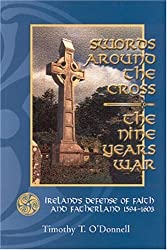

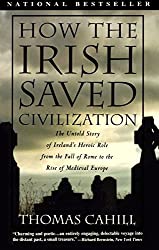
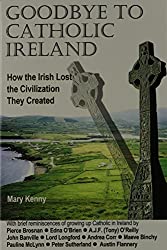
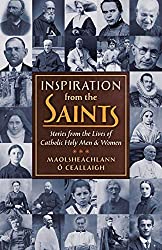
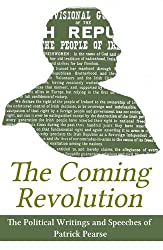
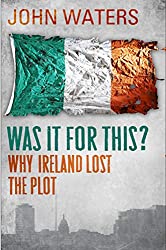
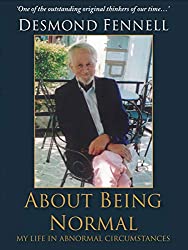
Comments
comments are currently closed
3 responses to “Timothy T. O’Donnell: Swords Around the Cross (Review)”
I ran across this while looking for his book on the Sacred Heart and was intrigued. My husband’s maternal side is 100% Irish Catholic. They have even kept alive Irish folk music as most of them play traditional instruments and are well known in my town as THE local Irish band.
I guess I now have another book to read once I am done with the books on the Ignatian retreat and the Sacred Heart.
Your website has truly expanded my reading list. 🙂 The biggest problem is finding some of these. Libraries don’t tend to have most of your selections. I have only managed to find one or two in a university library. Puritan Empire isn’t in any library in the state I live in and I can’t afford to buy it right now. 🙁
Oh, well. In God’s time.
Take Care & God Bless,
MaterLaeta
Thank you, MaterLaeta. It is very nice to get this fuller sense of your life here. And it would seem that this maternal line passed on the Faith till it reached your husband even in the troubled late 20th century. Lucky man! And lucky you!
The non-availability of these books is troubling. In both England and Ireland, there are good Catholic postal lending libraries. If such does not exist in America, it is high time it did. I wonder if an initiative towards such might mooted at FE …
God bless you …
[…] that Spanish period of my life, I discovered Coulombe’s remarkable book Puritan’s Empire – which I then reviewed in depth (here). And it was then that I first got to grips with the author’s provocative thesis – that […]
Dear friends,
As is very well documented in this book I will link to (offered as a free PDF), it was not primarily a natural famine which decimated the Irish population during “the Famine”, but British policy.
http://www.irishholocaust.org/book.html
The extreme depth of evil perpetrated for so long by the elite of the British Empire against the Irish people is unbelievable. And this policy of evil against the Irish began well before the Protestant Reformation. One’s heart breaks contemplating how this hell lasted for so many generations in Ireland, and what greatness Catholic culture might have reached in Ireland if its people had been allowed to develop and prosper in freedom. And yet, even after all this nightmare, the Irish people, traumatized though it may be, is in general more good-hearted than many other peoples who suffered less.
“These Irish did not so much mind the English monarch in times past – what bothered them now, was that the English monarch was no longer integrated into Christendom…”
How can this be true when the Irish were terribly oppressed by the English rulers simply for being Irish even while the English monarchs were nominally ‘Catholic’? If you read the historical timeline of chapter 1 in the book I linked to, it will become clear what I’m referring to. The Protestant Reformation in England only added religious persecution on top of what was already a most cruel and barbaric persecution of the Irish ethnicity.
Jonathan Michael: a hurried reply regarding the O’Donnell quote . . . Hurried as I am about to close all comments on this site. (As I simply cannot keep up with them any more.) Before I do that though, I wanted to thank you for that point regarding O’Donnell. It is indeed well-taken and I suspect Dr. O’Donnell may be a little naive here. Ideally, I should review the whole post, but again lack time. Despite taking your point though, I still think the book is a worthwhile one to explore. All authors have their limitations!